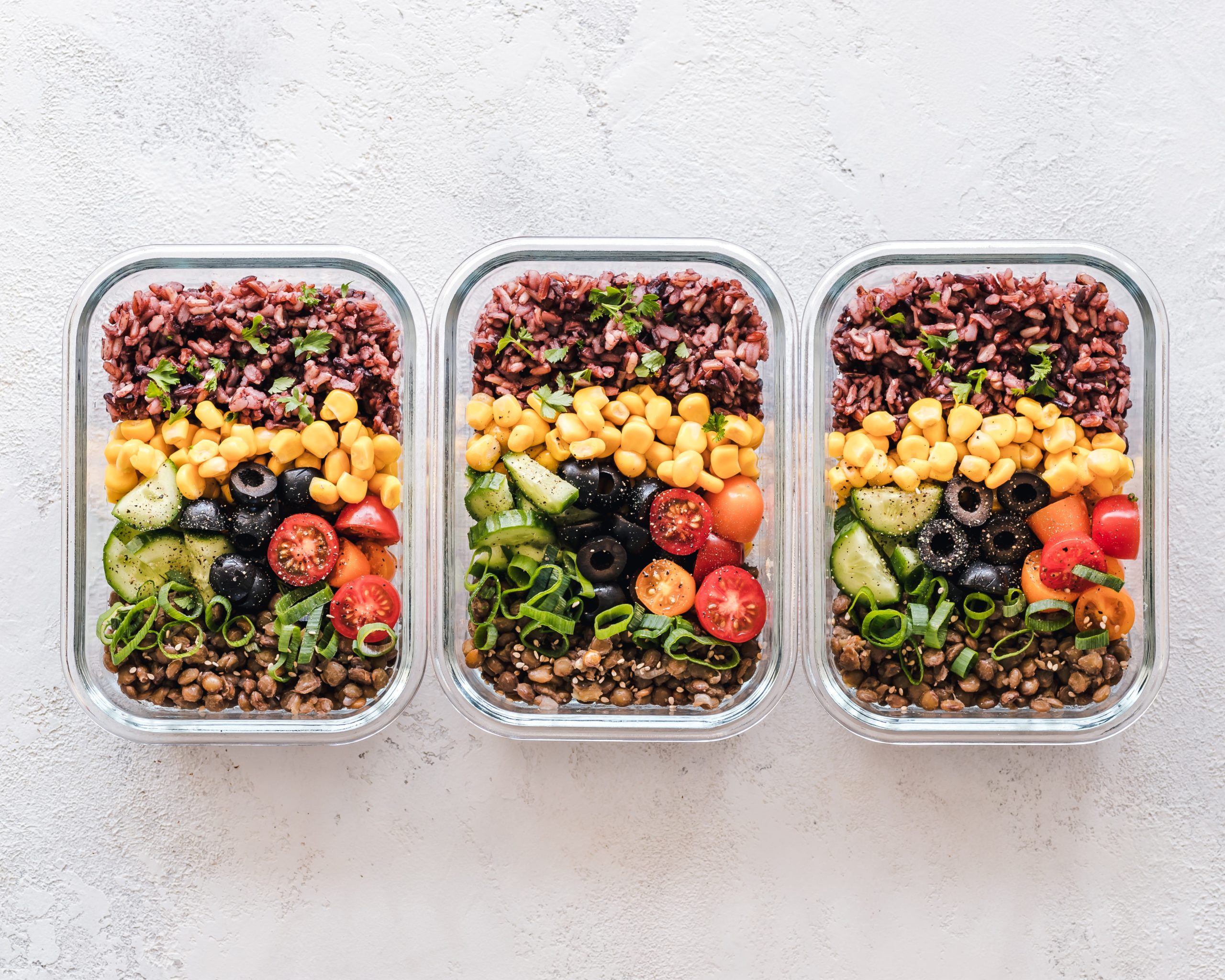January 8, 2020
If you looked at a list of popular New Year’s resolutions, chances are that losing weight is going to be near the top.
Around this time of year, searches for diet tips online spike, and gyms often fill up with people trying to get into new workout routines. The majority of Americans are either overweight or obese, so these are steps well worth taking. However, how can you ensure that you hold onto your weight loss plan, rather than stopping progress shortly after you begin? Let’s take a closer look.
1. Meal Prepping
As a start, most experts agree that the bulk of effort for weight loss is done in the kitchen, not in the gym. We’ll address exercise in a bit, but changing what and how you eat is the most significant way for you to make an impact with your weight loss. Meal planning is a great asset here. In our daily hustle and bustle, if you don’t have healthy food ready to eat, it’s a lot easier to end up relying on snack foods that are high in sugar, sodium, and other negatives. A good starter mentality to take is taking time on the weekends and evenings to plan meals for the day ahead. This can range from just doing some chopping/prep work to cooking meals that are easy to take on the go.

2. Understand The Science
At its core, weight loss is about burning off more calories than you consume in a given day. A lot of the popular diets out there accomplish this by lowering the intake of certain foods. Keeping this concept in mind is vital for helping you keep to a proper weight loss plan. For example, if you want to indulge in a snack once in a while, it’s okay. Just understand how many calories it has and be prepared to adjust. In addition, it’s a good idea for you to experiment with your cooking/meal prep to find dishes that are filling without a high-calorie content, like oatmeal. These can make great building blocks for a long-term diet.
3. Implement Light Exercise
Many professionals in the fitness world give the general advice that “You can’t outrun a bad diet.” This means that you can work out intensely, but if your diet is poor, you won’t see good results. However, that doesn’t mean exercise is useless for weight loss — quite the opposite. The calories you burn with weight loss give you an added “buffer” to make sure you are holding to a calorie deficit throughout the day.
Along with this, if you build muscle through strength training, your body will consume more calories, even in a resting state. Finally, exercise has a ton of benefits on its own, from strengthening your immune system to supporting mental health.
4. Prepare When Eating Out
When you want to go out with friends or family, some may be concerned about the impact of these meals on their weight. After all, they don’t have a nutrition label on the menu. However, you can make this a bit easier on yourself by looking things up beforehand. If you look at the menu online, you can see what dish sounds best for your weight loss plan. Most chain restaurants even have calorie amounts next to their dishes. You can also lower your calorie load by drinking water instead of soda or alcohol.

5. Being Realistic
As a final note, we need to emphasize how important it is to have a realistic mindset when it comes to approaching your weight loss. If you have a steady diet of junk food/sugary beverages, instantly going cold turkey isn’t likely going to be something you can maintain. Instead, it may make more sense to swap out your favorite snacks with healthier substitutes while adjusting your portion size. Eventually, you may be able to strike entire foods out of your diet.
Exercise is the same. Going from a sedentary lifestyle to aggressive workout regimes like Crossfit or powerlifting is more likely to cause injury than anything else. There are plenty of beginner programs online or in-person for both cardio and strength training that are a better fit. Finally, it’s important to be realistic about your progress. Sometimes, you may have a bad week where you fall off the wagon. That’s no reason to discard your plans or progress. Just determine what caused the issue and move on.
When embarking on any significant lifestyle change with your health, you must check in with a medical professional first. Talking to a doctor about weight loss will ensure that you’re going about things in a safe and sustainable manner, and you may even be able to get some advice suitable for your needs. At Healthcare Associates of Texas, we serve the greater Dallas/Fort Worth area at 15 locations. Our combination of expertise and service makes us an ideal asset for those looking to manage their health in the new year and beyond.
DISCLAIMER
The information featured in this site is general in nature. The site provides health information designed to complement your personal health management. It does not provide medical advice or health services and is not meant to replace professional advice or imply coverage of specific clinical services or products. The inclusion of links to other web sites does not imply any endorsement of the material on such websites.